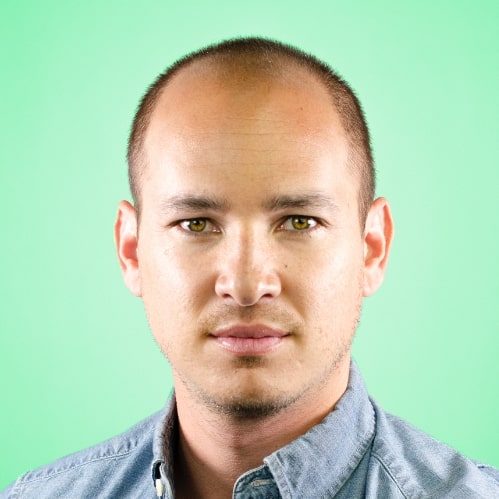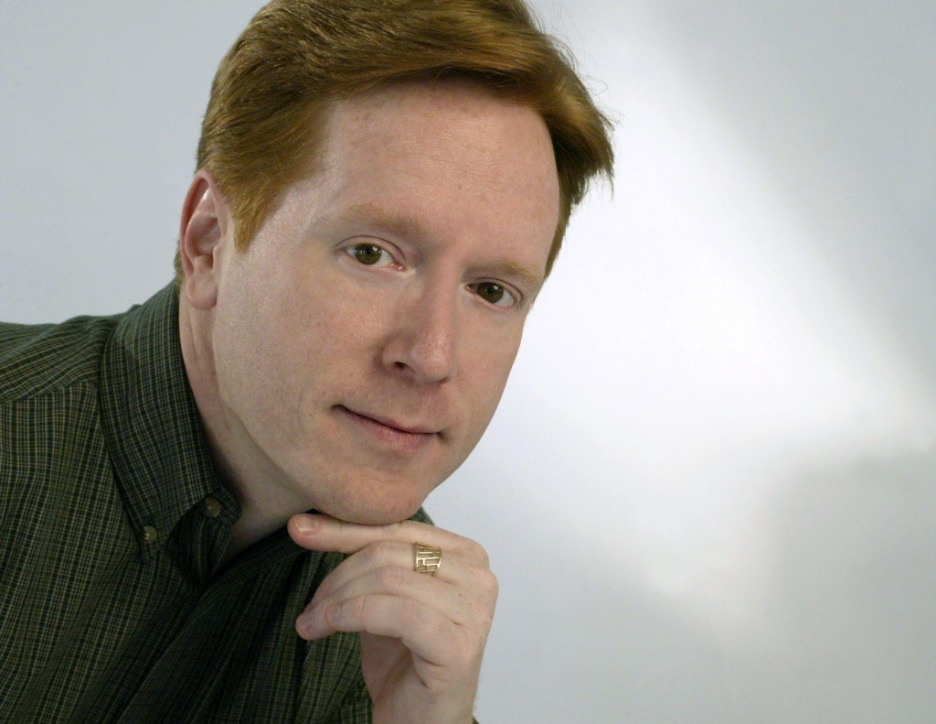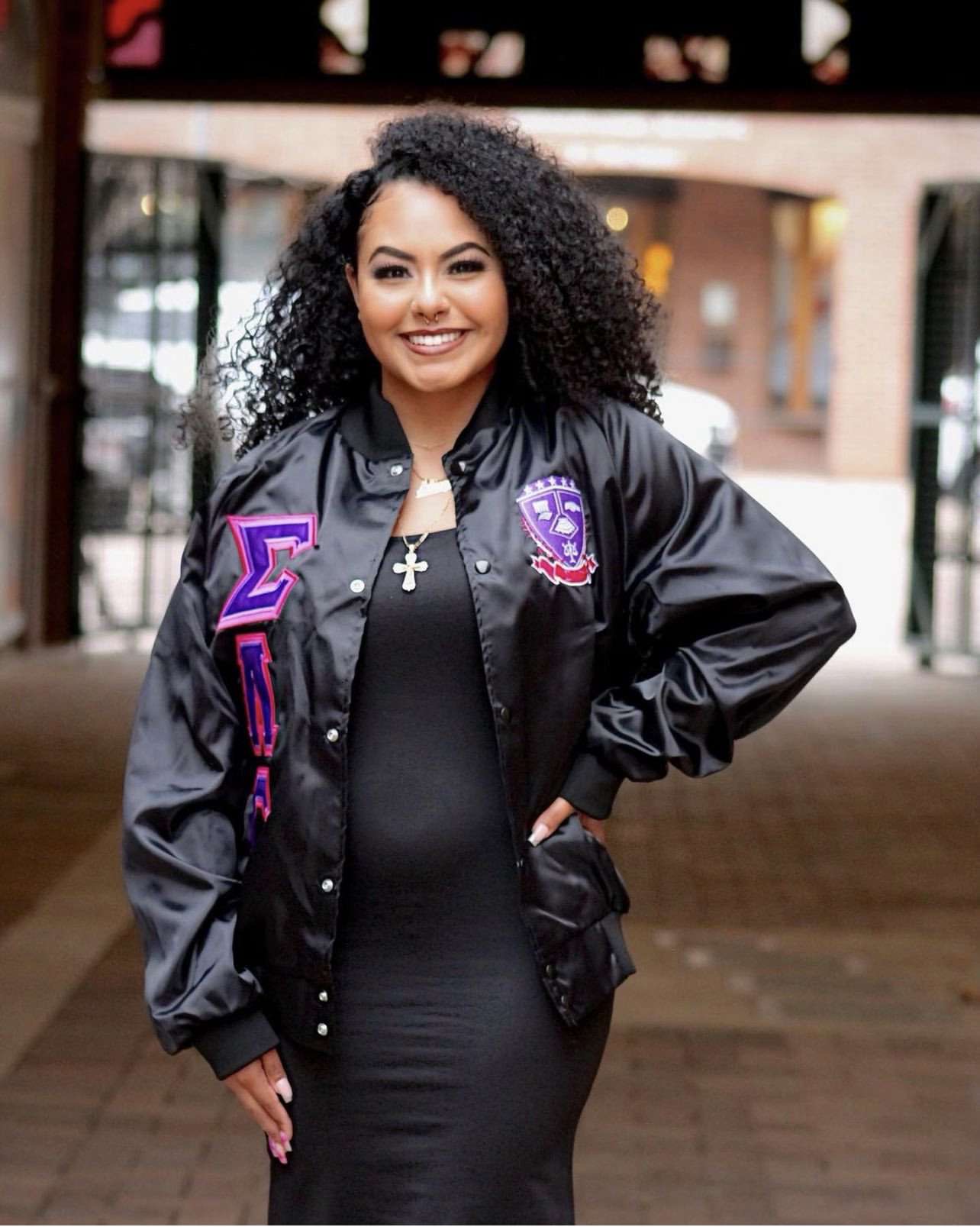
UNC Alumnus, Julian Carey shares his experience as a jazz vocalist as well as the prominence of UNC’s Jazz program across Colorado.
Well, let's get started. What's some of the history behind Julian and jazz?
So, I think the history with music has been a lot longer in my family than it has been with jazz specifically. On the one side of my family, there's the whole Carey family and they're all the singers in town. Huge Gospel music presence in Denver. So I grew up in that, listening to it, and then eventually singing a bunch of that. And I didn't start playing bass for quite awhile, like until right before high school. So I wasn't like my church is bassist for my entire life the way a lot of people have. So there was that. When it comes to jazz on the other side of my family, there's my grandfather Joe Keel and he's just fantastic. He's such an inspiration. He's played with everyone, like Miles Davis, Ella Fitzgerald, he's like the guy.
I didn't know that for quite some time. I remember I was trying to learn like, So What on piano from Kind of Blue 1959 and I was playing it and he was like, that voicing is wrong. Now, that's before I knew that there are actually some correct answers in jazz. Like how did they play it on that recording? I said, ''well how do you know? I thought this kind of up to everyone's interpretation?'' And his answer was, ''well, yeah, I played with Miles Davis and I made the same mistake.''
How old were you?
How old was I?
Yeah. When you, when you discovered that?
I was in high school, this had to be, I was like 16 maybe 17 when I discovered that when he told me. And then when he just told me all these stories, he's got stories for days with everyone from Charles Mingus to Thelonious Monk and of course Miles Davis.
Have you ever like recorded him and like had had discussions with him like that?
No, I really want to do that. I want to do that. I know there've been a couple people who wanted to document somehow some of the things that he says and just some of those stories and those conversations and it's too long for one podcast. Like you'd have to have a whole podcast dedicated to him telling me stories because he's a talker. He's got a lot of them too.
There's probably part one, part two or three.
Yeah, well there's part one, part two and then like subsections a, B and C as it's like explaining everyone else that was there and all that kind of stuff and you know, whatever else he was doing at the time.
Well what an inspiration though. So, It's clearly in your family.
Yes.
And when you were deciding on colleges, how did it kind of lean this way?
To take a step even further back, I didn't even know that I wanted to do music as a thing. It was just something I, it was something I did. And as I'm kind of trying to figure out like, ''oh, what do I want to do with my life?'' You know, I'm thinking about this, like as I'm teaching myself stuff on like piano and bass, you know, and I'm singing it all these places and I'm like, yeah, but what do I want to do in life? And then I realized it's like, Oh, I've been doing what I want to do. I just, I realized I wasn't really getting the fulfillment that I wanted out of so much other stuff.
And a lot of people don't realize, but I did theater all four years of high school and I did choir only three years. And I did band only two years. So a lot of people were thinking like I would show up anywhere and just be like an actor. But that very quickly turned into the thing that I like, kinda hated doing the most.
Wait, say that part again - with the music?
No, with acting.
Oh, okay. You did not like the acting.
It was fine. I just didn't get the same fulfillment. There was no danger in it the way there is in music. And that's kind of what I appreciate about music because there's so much unexpected stuff.
What's the danger?
The danger is like, you know, taking a musical risk and hoping that you can trust the rest of the band, that they're going to catch you if something happens. It's like, obviously no one's going to die. You know, there's no true physical, tangible danger to playing music. It's just, it's one of those places where there's more spontaneity that can happen.
So as for what led me to UNC, um, here we have two professors named Kerry Marsh and Julia Dollison. They're like, I'm really not exaggerating and if Kerry hears this, he's going to be so the way he is.
'So Kerry.'
Yes, he's going to be, 'so Kerry,' but Kerry is what is probably the single most prolific vocal jazz arranger of our time. Like everyone around the world for decades has been singing and stuff.
And this is what's surprising me every year that I'm here in Greeley and at UNC, I'm hearing more and more about jazz. And it sounded like this is kind of where the culmination is. Is it in Frasier? Is that what, starting this, like Greeley and jazz?
Yeah. It's been here for, for quite some time. And I don't know what it looked like in the past in terms of people really getting out and playing, but it's extremely common now, especially now that there are so many more places that are open to having that, you know, between Tower 56 and Patrick's and 16th Street Tavern, which is now High Brau. High Brau doesn’t have quite as much of that as 16th St. Tavern used to have, but there's so many places where that's just happening in the community and that's only Greeley, right. We've got Ace Gillett's, Jay's, Crown Pub, all that stuff in Fort Collins. Then in Denver we've got Dazzle and we've got Nocturne and we've got the Meadowlark and Mozart's and all this and all these places. And UNC students are tearing these places up. Alum’s and current students and faculty. Like we're, we're just out there.
What a lot of people don't know and probably don't expect as with UNC jazz program. Like it is a multi award winning program. It's a Grammy nominated program. Like one of our groups literally got nominated for a Grammy.
And I'm assuming this is like year after year that this is going on.
Yeah. Not the Grammy's.
Right. That'd be awesome.
Yeah, that'd be great. there's the Downbeat Student Music Awards through downbeat magazine, and every year they have a competition for, gosh there's so many categories. For soloists, for and for ensembles and also for other individuals who are arrangers and composers and things like that. The last year, UNC one 11 downbeat awards. That is most of the categories that we could ever win for because we're not a high school. And so there's that. And then I think this year, I don't remember how much it was, don't quote me on this, but I heard it was between 10 and 12 this year. So really UNC has been on the map for jazz for a really long time.
So you were here for years?
Yes.
What are some, what are some of your accolades and performances that you've acquired over the years?
Well, there's all this stuff that happens because of school, like being like the vocal jazz performances and, and those things that you just will be a part of through being a performer. There's some of the non jazz stuff too though. Like I was in concert choir for a few years and my freshman year we did the Mass in B minor by J.S. Bach, which is like one of the hardest pieces I've ever sang in my life. It was just insane to learn and that was a big milestone for me cause it was one of those times, it was the first time where something was so hard that I almost quit and then decided, no, no, I've got to stick with it. Everyone I talked with about quitting said like, no, no, no, get after it, you'll be fine.
So that was a big one for me. One of the other big ones was when Vocal Lab performed with Bobby McFerrin. Like literally Mr. Don't worry, be happy. Like that's the guy. He came to Greeley and my group performed with him. We performed with the New York voices. We performed with Aubrey Logan. I got this really, really special moment with Peter Eldridge. New York Voices multi-Grammy winning vocal jazz group. They were here for the festival and I told them how much I loved one of his songs in passing. And you know, of course I'm just like, oh my God. And he looked right at me, he said, you should come sing it with me after the show or before, after soundcheck. I was like, uh, okay. So he came and sure enough backstage she was like, ''oh my gosh, let's do this. We have to do this.''
And so we went over and I sang this with him and we've just had this great relationship ever since. And obviously like the world of Jazz, the community is relatively small in terms of the educators and the accessible stars that you'll see. And even the really big stars, right? Like there's a bunch of them, but the biggest of all, everyone really kind of knows them. So when I go to something like the jazz education network conference, which is another place where UNC's local jazz group or the one that I was in Vocal Lab, very successful performance there every year that we've gone. But I'll see Peter at those things and he's always checking up and you know, he checked out my album, which was just insane. Other performances though, while I've been here, not involved with the school, I ended up performing with this like northern Colorado funk group called Archie Funker for a while. So it's like kind of a thing.
But then I eventually started getting calls for like, what was it? Junior year I performed with Hans Zimmer.
That name sounds very familiar.
Composer of Pirates of the Caribbean and like parts of Lion King and inception, interstellar, like the guy. So I got a call to do that, like acquired thing for that. And then a year later I got called for the, for game of Thrones, same kind of Gig with Ramin Djawadi who's the composer and the conductor of that one of those shows
So your voice is in Game of Thrones?
No, not like the show. It was just, there was the live performance that happened at Pepsi Center that was in the last year. Man, it's been, it's just been insane. Now I'm like trying to go back catalog. Oh, they're really cool stuff that I've been able to do.
Open up the files.
Yeah, for sure. You know, I'm in terms of downbeat awards, let's see. I have two national young arts awards. It's a, it's a competition for people up to senior year in high school. So I have two of those as a jazz vocalist, as like as a vocal soloist. I think I have three or four downbeat awards associated with groups that I've been in this year. I just want a downbeat award for a composition that I did with another great student named Daniel Thompson. Yeah, he's a jazz piano student, master student. He also just graduated this year and man, he's just one of my best friends that I've met here and just such an amazing creative musician. I've just always loved the process of working with him. Especially on that whole album. And then, you know, obviously another one of my longest collaborators, uh, Spencer's Zweifel since I've been here, another great pianist and we've played, you know, none of the crazy big stuff and we never recorded formerly together for a jazz thing from what I can remember. But we've performed together in Fort Collins and all over Greeley and just all the time.
How fun and inclusive of a profession. Cause I remember an astronomy professor saying, ''you know, the network within astronomers is really small. You kind of know everyone,'' things like that except, the way you're saying it with the jazz, it's almost like, yeah, you know everyone but you can, you work, you're working with them like you're performing with them. And the fact that like they're enthusiastic about it too and just, they seem so welcome and like to read, you know, I guess it's to listen to your work too is like what an honor to like be able to do that.
And it's not everybody, but it is so many people who are willing then that time and it's great. And speaking of some of that inclusivity, I guess one of the other cool things, really cool things I did is I recorded on, I think two of, one of my professor's albums is Erik Applegate. And he's a super slamming composer, arranger and bassist. He's excellent.
If you ever label someone as slamming composer, I'm going to trust you.
He's great. Erik is fantastic. I love his compositions. They're beautiful. They're, you know, they're really deep. They're just, enjoyable in every possible sense. The writing is good, but it's a great listening experience. They're always interesting, and going somewhere. Um, but man, and that had been a long time coming too. I did this song, I was trying to make an example of some song in a class and a couple of weeks later he came back and he said, would you, would you sing that song on my album? And so it was me, him and another professor, a jazz drum professor named Jim White. So we did that. And then from off of that, I think before that even, I did a show with him called FioNina. It was a tribute to Fiona Apple and Nina Simone that we did in Denver. It was excellent. Again, one of those moments where I'm like, ''so who's the band? It's like, oh my teachers, this is kind of weird...''
And from off of that we did another album together. I was on a Grammy considered album called Infancia recorded by one of our students, Cassio Vianna. And I did some of the vocals on there and man, his writing was just gorgeous. And from all of that, like I ended up performing with lab one or you know, one of the greatest college big bands in the world. Certainly in the country. They're the ones that like kind of sweep every year. I don't know the last time they didn't want to Downbeat award. Um, and yeah, so for a lot of our big, big band performances here, I've been, you know, blessed to be called for those.
We're running out of time on this episode, so we're going to continue on the next, yeah, sounds good. I'll see you there.
Music
I have Looked Upon Thee – Julian Carey
Up Into the Silence – Julian Carey
"may my heart always be open to little". Copyright 1938, © 1966, 1991 by the Trustees for the E. E. Cummings Trust, "up into the silence the green". Copyright 1939, © 1967, 1991 by the Trustees for the E. E. Cummings Trust, "The white rose my soul". Copyright © 1973, 1983, 1991 by the Trustees for the E. E. Cummings Trust. Copyright © 1973, 1983 by George James Firmage, "SAPPHICS". Copyright © 1973, 1991 by the Trustees for the E. E. Cummings Trust, "I have looked upon thee--and I have loved thee,". Copyright © 1973, 1983, 1991 by the Trustees for the E. E. Cummings Trust. Copyright © 1973, 1983 by George James Firmage, "love's absence is illusion,alias time". Copyright © 1973, 1983, 1991 by the Trustees for the E. E. Cummings Trust. Copyright © 1973, 1983 by George James Firmage, “let it go- the”. Copyright 1944, © 1972, 1991 by the Trustees for the E. E. Cummings Trust, from COMPLETE POEMS: 1904-1962 by E. E. Cummings, edited by George J. Firmage. Used by permission of Liveright Publishing Corporation.





